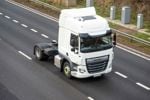BMW is all set to use a motorcycle engine to help it introduce the first model in a radical electric car range.
Officials at the car firm have decided to offer the petrol unit as an option in a bid to allay fears that batteries might not provide a sufficient range for their new i3 city model.
On sale from the end of the year, the first premium five-door hatchback EV is claimed to offer up to 100 miles of emission-free travel for four people and their luggage.
But this distance will be almost doubled with the addition of the 650cc, twin-cylinder engine, which usually powers models built by Motorrad, BMW's two-wheeler division.
Slotted in alongside the regular electric motor at the rear of the car, the petrol engine is designed to come into action when the i3's batteries run out of power. But it will act only as a generator and will not drive the car directly.
“We believe in electric power in its purest form but we accept that customers may have anxieties about the distances they can cover on electricity alone. We feel we need to do something to overcome these concerns.
“However, I have to say that our experience so far with prototypes suggests that the range extender will be an option with a sell-by date – in all the tests we've carried out, 90 per cent of the daily trips made by potential customers have been under 49klms,” BMW Group powertrain project leader Patrick Mueller told Fleet News.
Despite that, company officials expect up to one third of British buyers of the i3 to choose the extender option.


















Mark - 21/04/2013 14:47
This seems like a simple, inexpensive(?) solution.